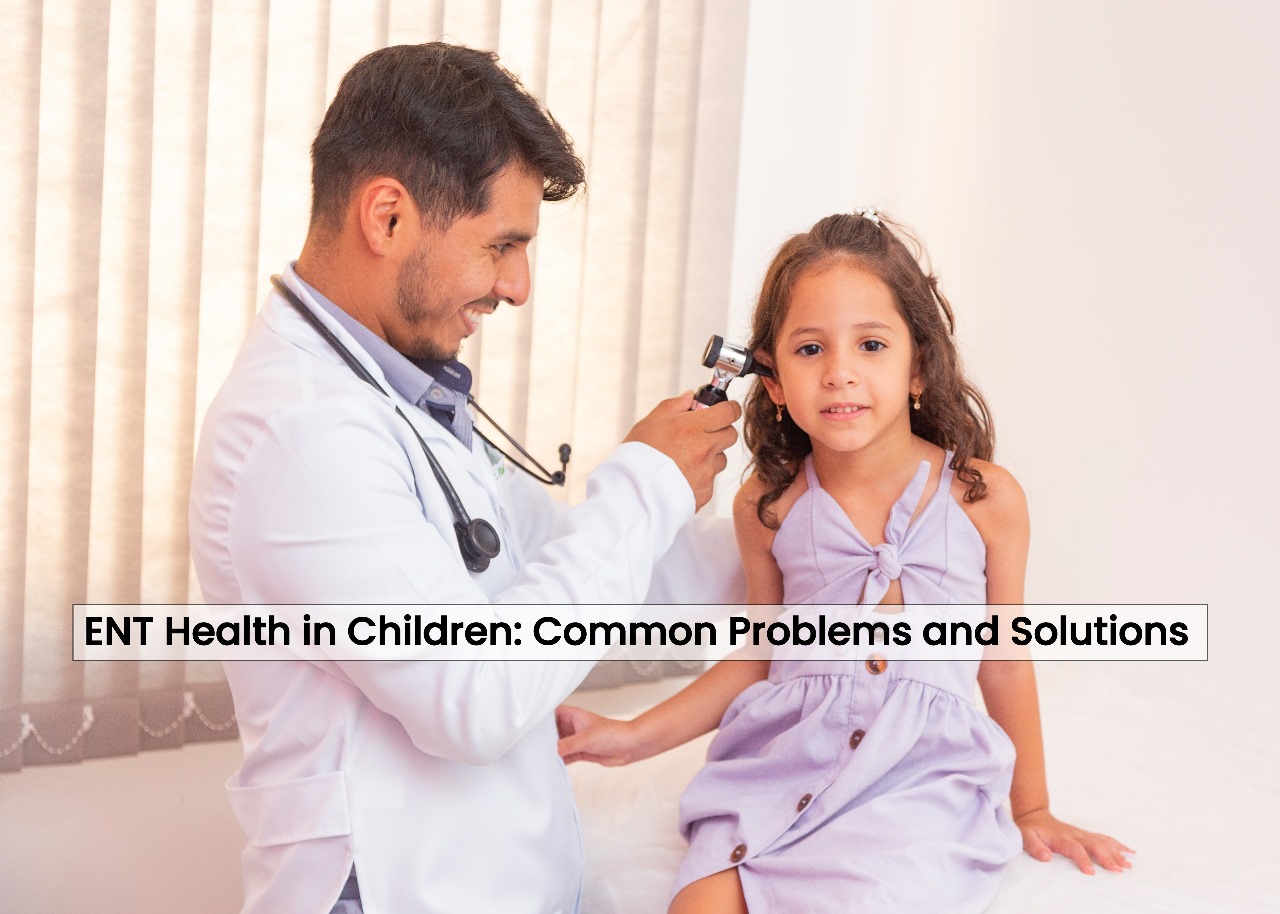ENT Health in Children: Common Problems and Solutions
Children’s ENT Specialist in Kukatpally plays a vital role in ensuring your child’s ear health. As every parent, you always wish your child to be healthy and happy. You may be concerned about the health of your ears, nose, and throat (ENT), but children are not exempt from problems related to these areas. Children’s ENT health is crucial since it affects their overall development and can impact your child’s hearing, breathing, and communication.
ENT Hospital for Your Child in Kukatpally
Visit ENT Hospital for Your Child in Kukatpally, Amrita ENT if your child suffers for ear problems. If ear infections are not treated promptly, they may result in hearing loss. See a doctor as soon as possible, and pay close attention to their treatment plan. Treatment usually consists of nasal sprays, ear drops, or antibiotics. Make sure your child stays hydrated and gets enough sleep to aid in their recuperation.
Ear infection:
Ear infection medically known as otitis media, are among the most frequent ENT problems in Children’s ENT Health. They appear when fluid builds up behind the eardrum and gets contaminated by viruses or bacteria. Prolonged fluid accumulation in the middle ear, fever, and severe ear pain are all possible outcomes of this illness.
Tonsillitis:
Inflammation of the tonsils, which are small glands at the back of the throat, is caused by an infection called tonsillitis. It often results in a sore throat, difficulty swallowing, and may be accompanied by a fever. Tonsillitis is particularly common in children and is typically brought on by a bacterial or viral infection, though it can also affect children’s ENT health. For mild cases, over-the-counter pain relievers like paracetamol and plenty of rest can help manage the symptoms. If a child experiences frequent bouts of tonsillitis, surgical removal of the tonsils may be considered.
Nasal allergies:
Nasal allergies, or allergic rhinitis, occur when the immune system reacts excessively to harmless substances like pollen, dust mites, or pet dander. Common symptoms include a runny or congested nose, frequent sneezing, itching, and eye irritation. These allergies can affect Children’s ENT Health. Although there isn’t a long-term solution, there are a number of treatments that can help control the symptoms. Options include antihistamines, decongestants, nasal sprays, and minimizing exposure to known allergens. If symptoms are persistent or severe, it’s important to seek medical advice for appropriate care.
Obstructive sleep apnea:
Children with obstructive sleep apnea experience shallow or paused breathing during sleep due to a partial or total blockage of the upper airway. This condition affects approximately 1–3% of children and can lead to serious issues such as developmental delays, behavioral challenges, and heart-related complications. Treatment often involves lifestyle adjustments, such as weight management (if needed), sleeping on the side, and reducing exposure to allergens. To keep the airway open while you sleep, doctors may occasionally recommend the use of continuous positive airway pressure (CPAP) devices, nasal sprays, or prescription drugs.
Conclusion
Maintaining Children’s ENT Health is essential for overall well-being. As a parent, it’s important to stay alert to signs of common conditions such as ear infections, tonsillitis, nasal allergies, and obstructive sleep apnea. If any symptoms arise, consult Children’s ENT Specialist in Kukatpally, at Amrita ENT’s healthcare professional promptly and adhere to the recommended treatment. Prioritizing your child’s ENT care helps support their healthy development and ensures a happier, healthier future.
FAQ’s
When is the right time for me to take my child to an ENT specialist?
You should consider visiting a pediatric ENT specialist if your child experiences four or more ear infections within a year, shows no improvement despite antibiotic treatment, suffers from frequent or recurring sinus infections, or has persistent inflammation of the tonsils.
What causes ENT problems in children?
Infections with bacteria or viruses are frequently the cause of ENT problems. While many of these conditions are easily treatable, some may become chronic and lead to long-term complications if not addressed properly.
How can ENT disorders be prevented?
Effectively managing allergies, practicing good hand hygiene, avoiding secondhand smoke, and limiting exposure to sick people are all important ways to lower the risk of ENT infections. In certain situations, ear tubes may be advised for children in order to help prevent recurrent ear infections.
Can ENT specialists treat allergies?
Indeed, ENT specialists are essential in the diagnosis and treatment of allergies affecting the throat, nose, and ears personalized treatment plans, they help patients reduce symptoms and enhance their overall quality of life.



